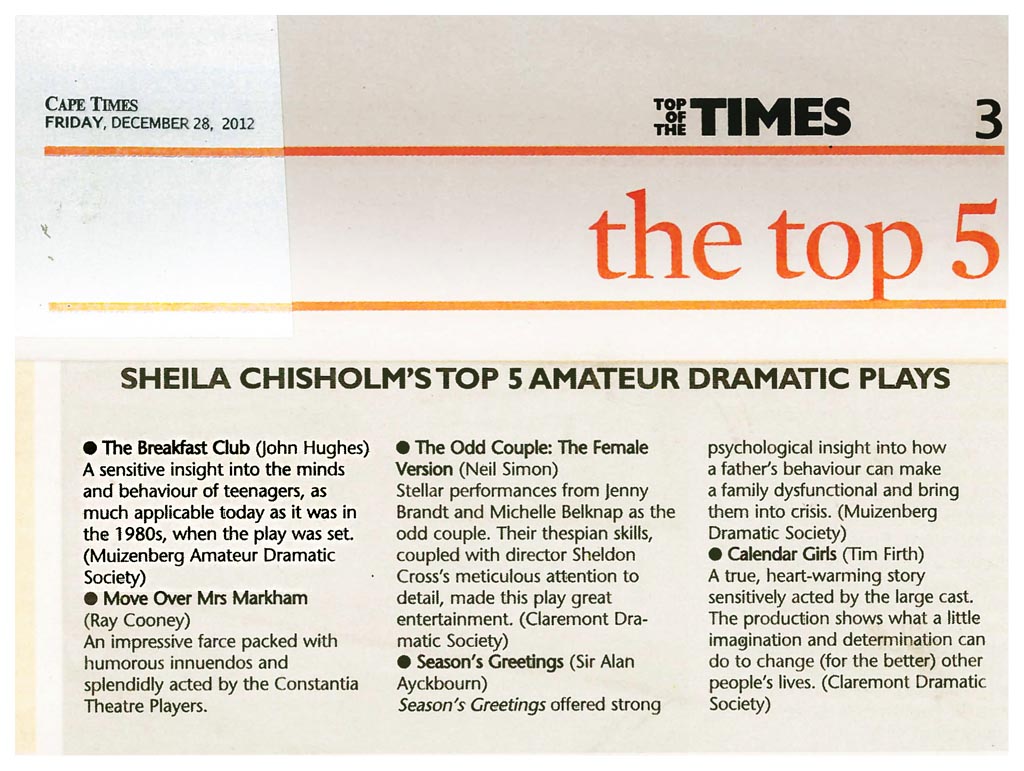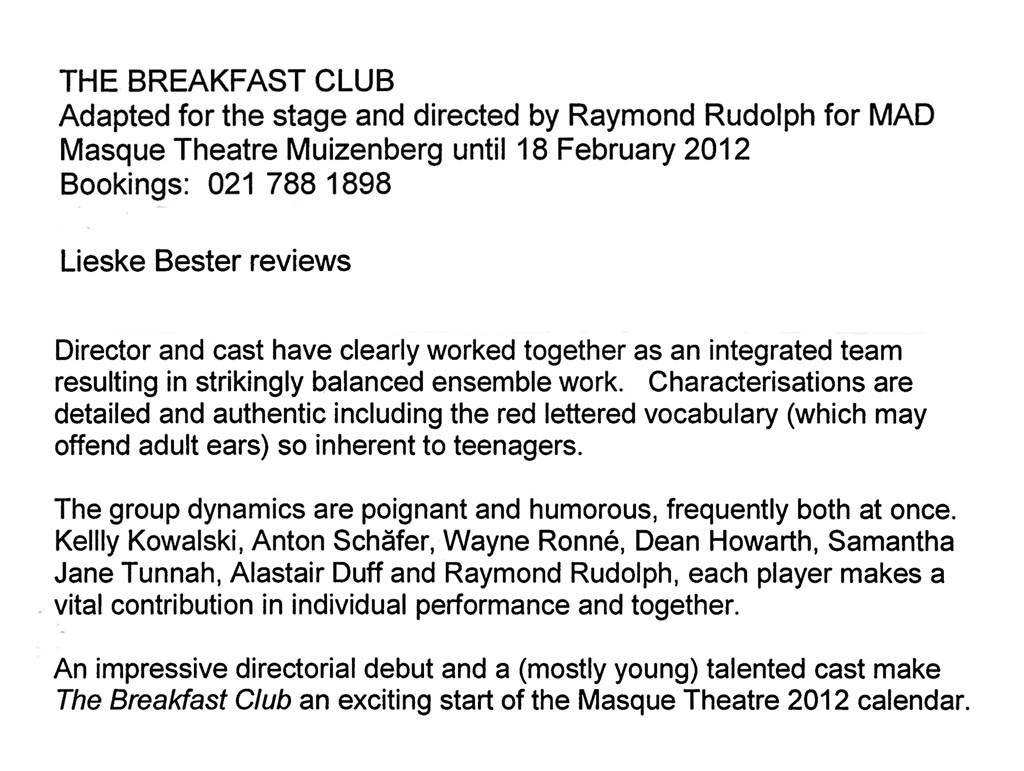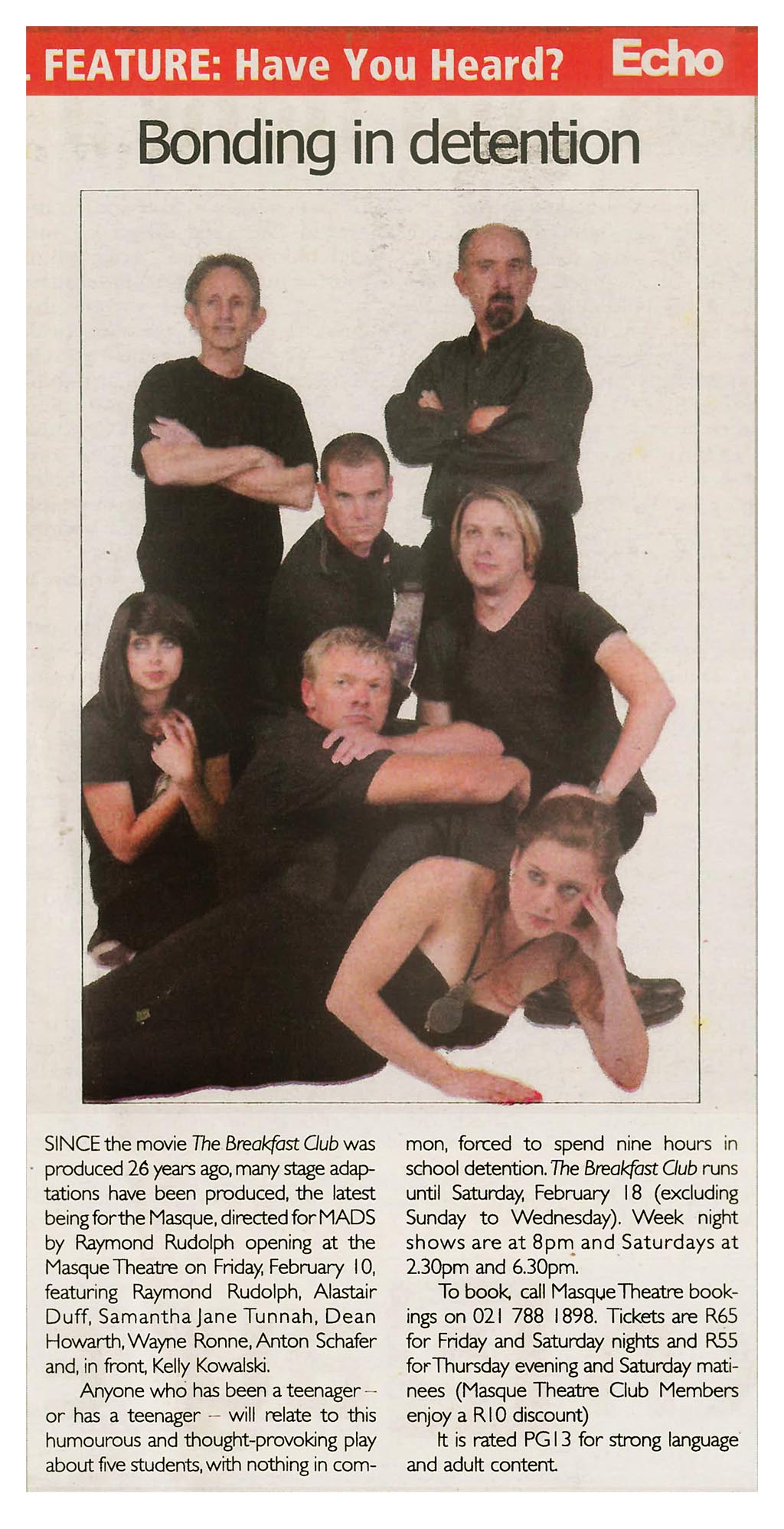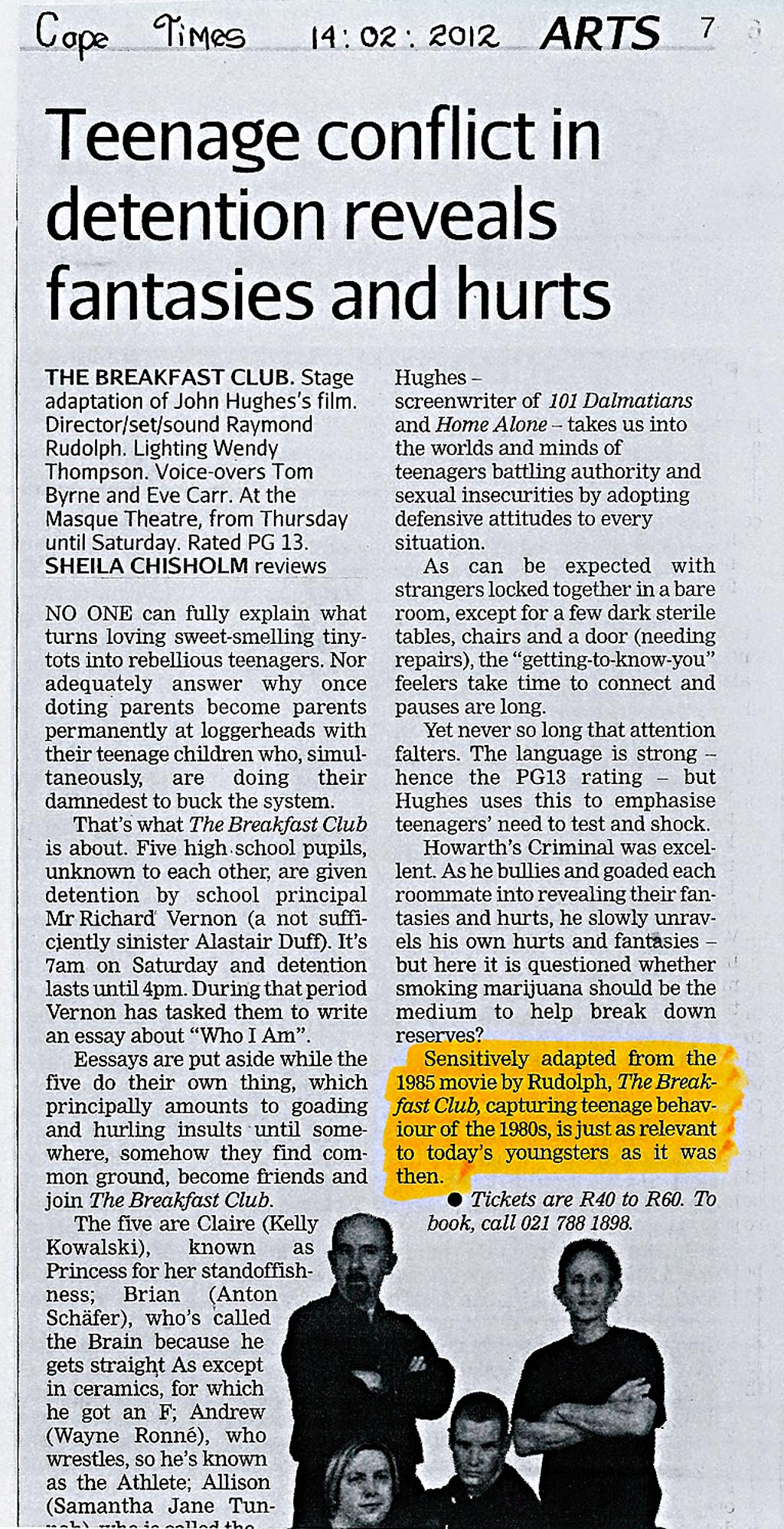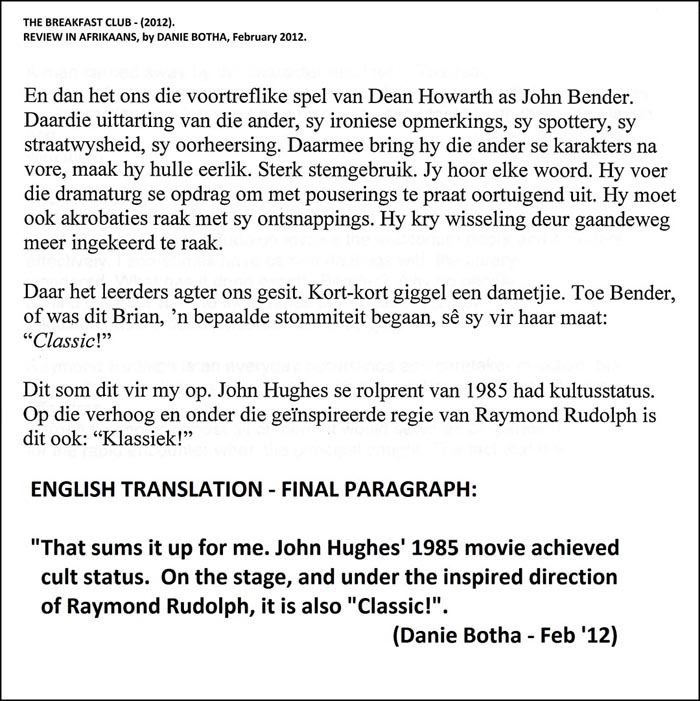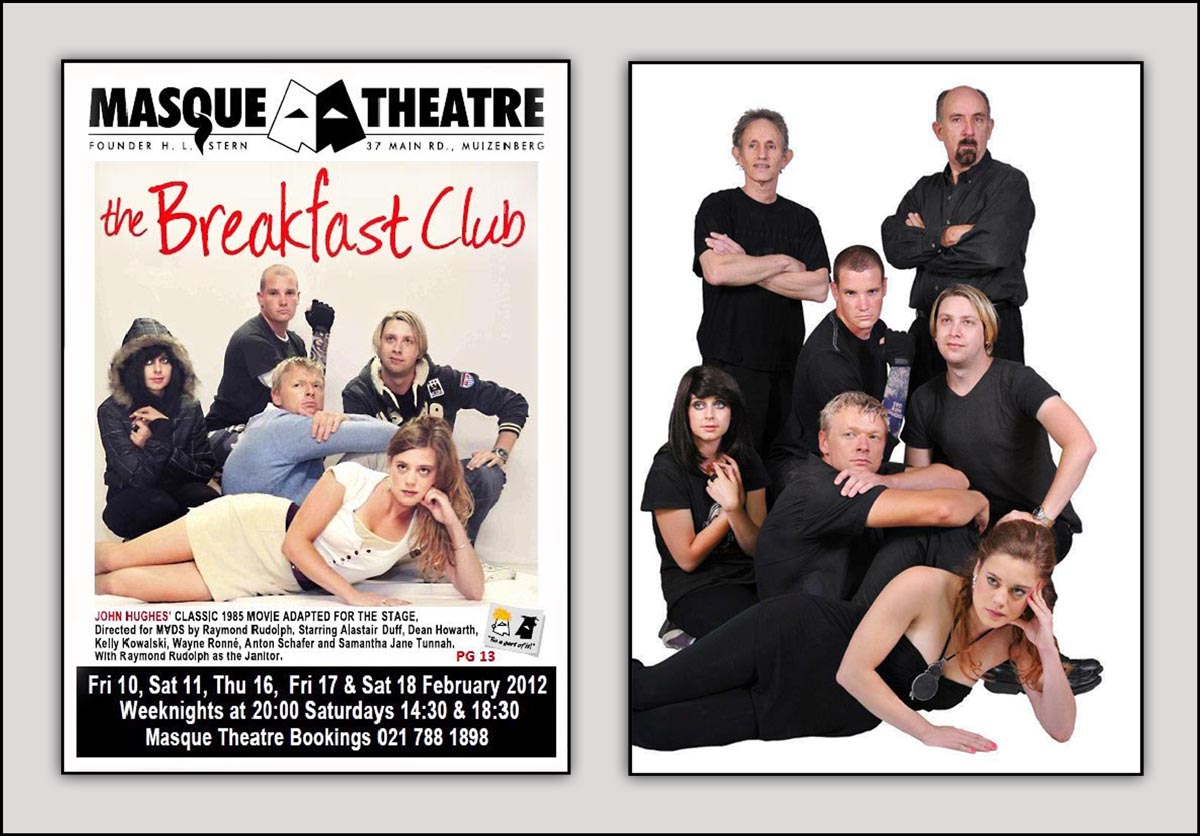

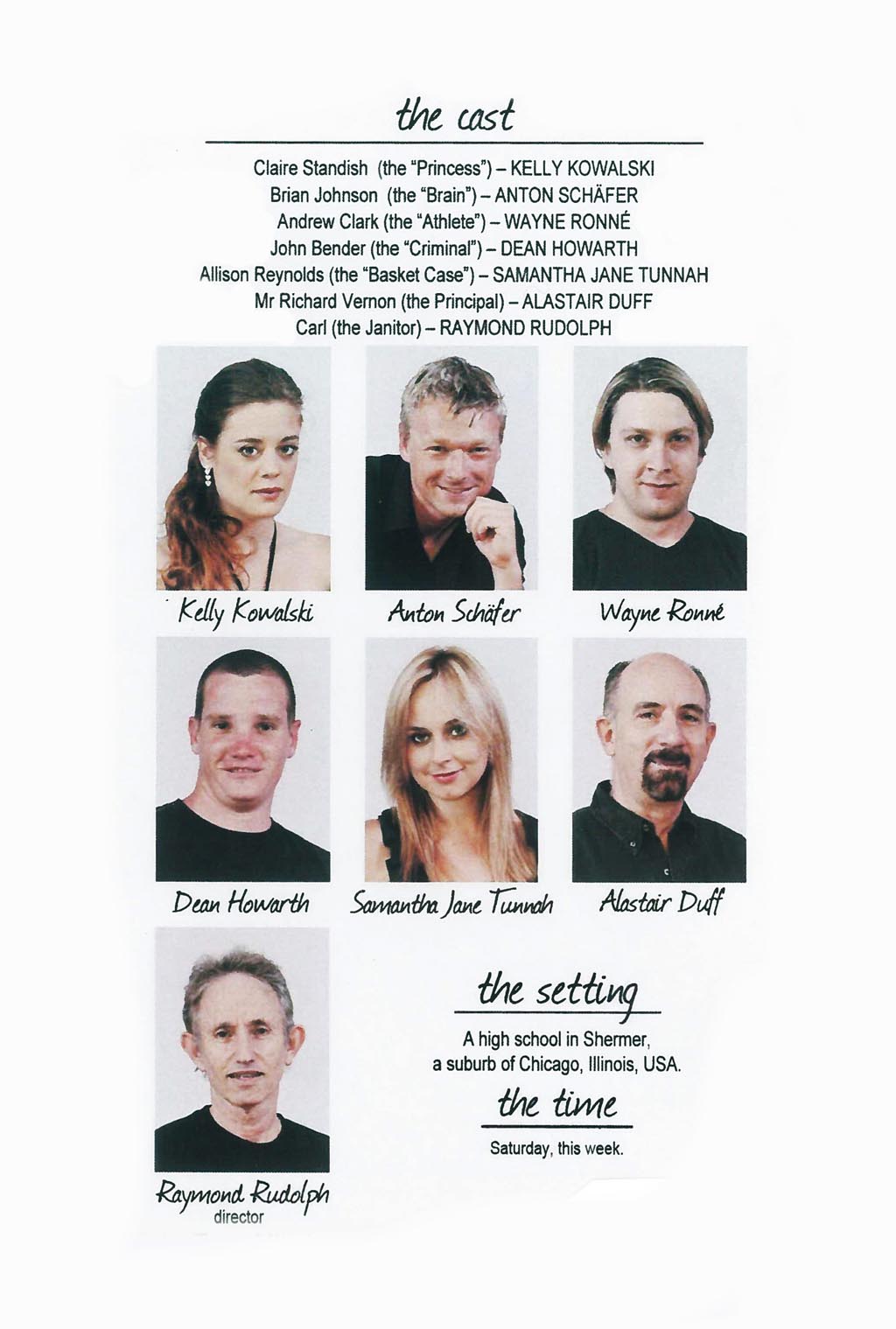
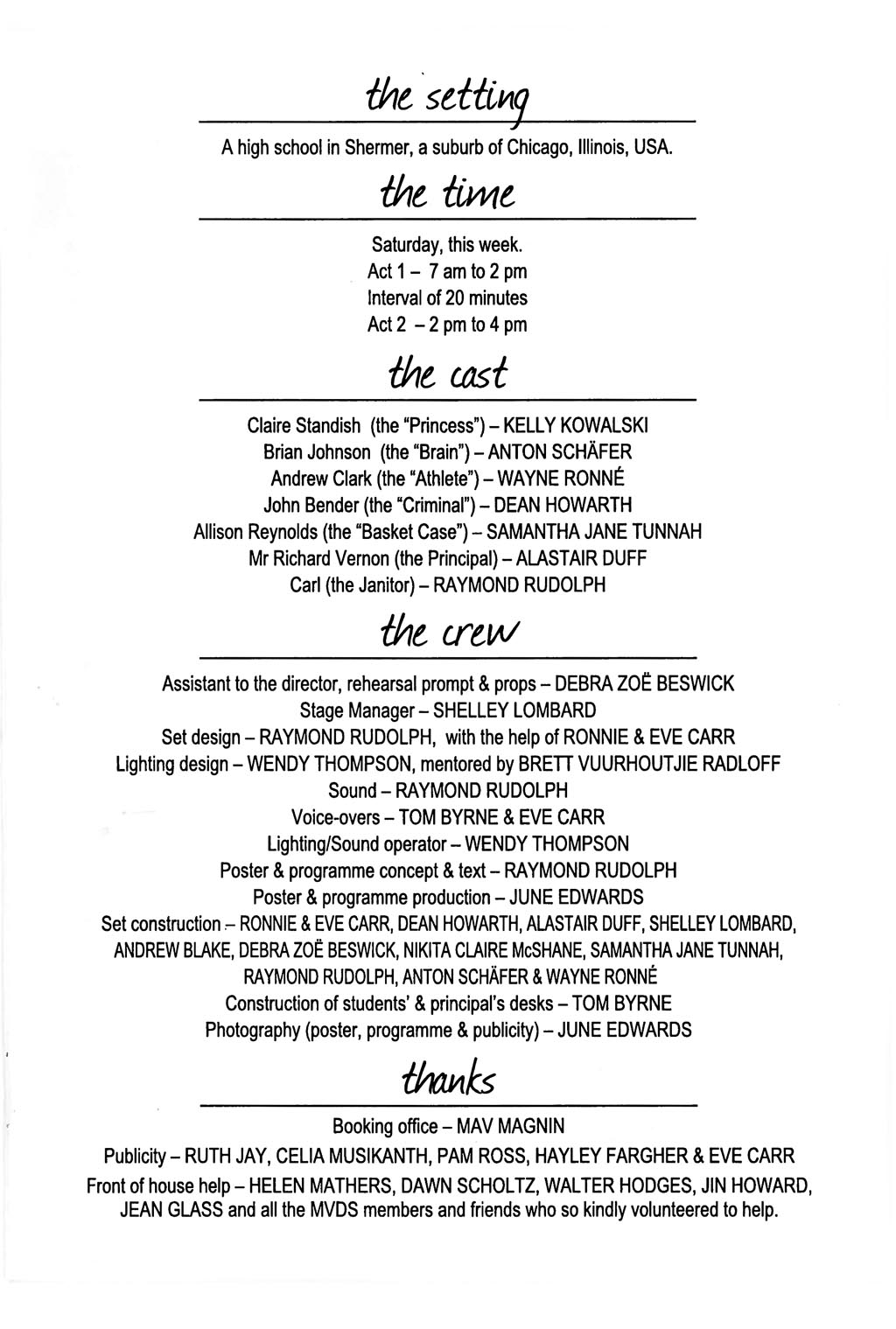
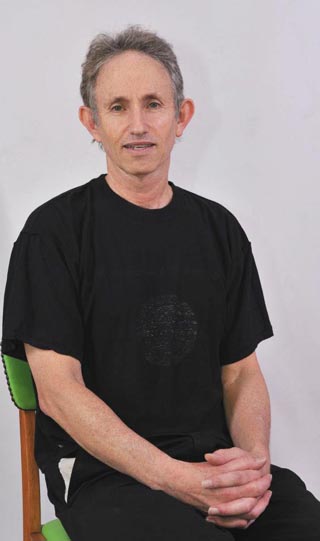
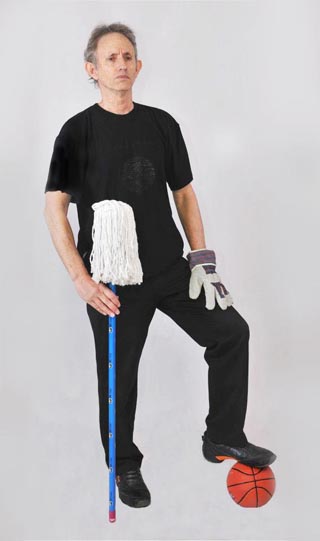

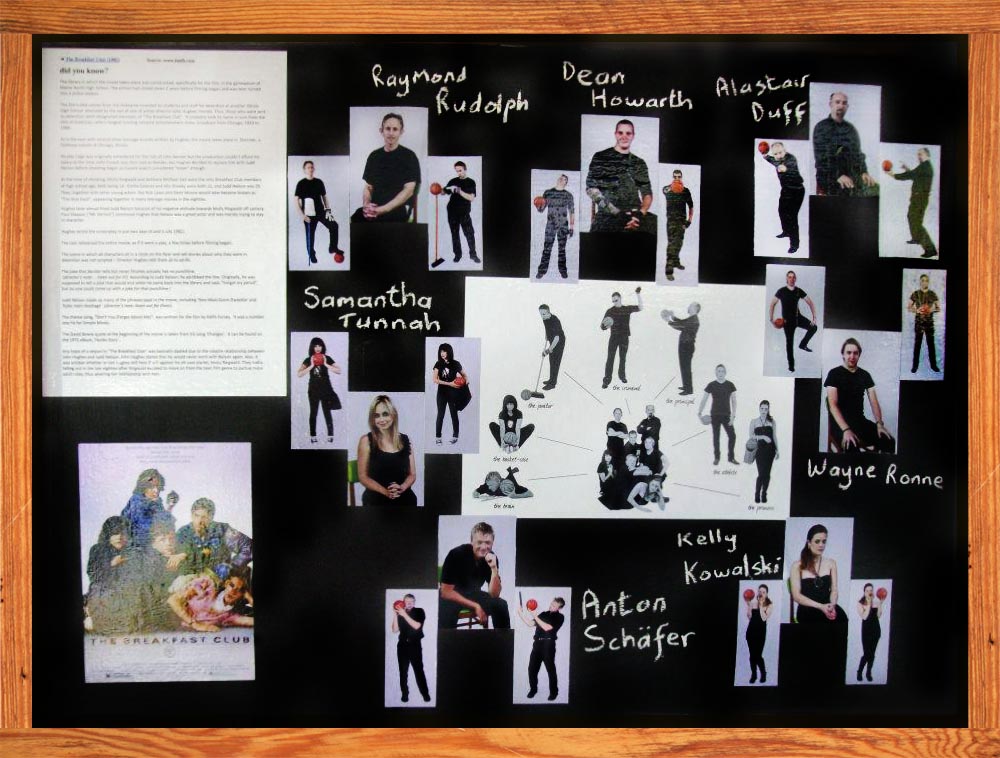
message from the director
After watching the original movie in the 80’s, I remember thinking at the time what a great play it would make: the action takes place almost entirely in one setting, a school library, with occasional parlays into the school hallways. Its underlying themes were timeless, and the antics of the young cast captivated audiences both young and old.
Since joining MVDS in 2008, I’d had the idea of adapting the movie for the Masque, and while researching the project I saw that the story had been taken to the stage in countries all over the world: by schools, student groups, community theatres, and others. This gave me the confidence to pursue the matter, so in 2009, (the year in which its reclusive writer-director John Hughes passed away at the age of 59), I suggested to the MVDS committee that we stage an adaptation of the movie in 2010 – the 25th anniversary of its release. The ensuing schedules didn’t so permit, but we finally found a slot in 2012, and here it is.
Last year I was fortunate to attend a series of workshops on Directors & Directing, organised by GIPCA (the Gordon Institute of Performing & Creative Arts). The programme included a private viewing of the play, “Shakespeare’s R&J’, directed at the Fugard Studio by Fred Abrahamse, with a question-and-answer session thereafter with the director. Responding to a question about how he had managed to get the young cast members, acting as schoolboys, to form such a coherent group on stage, he replied: “70% of a director’s job consists of getting the right cast together” – even though he knew the performing capabilities of almost all the individuals under consideration, he had to make his final choice based on how they interacted as a group, not as individuals.
Abrahamse made it sound so easy, I thought, but things were not always that smooth at the beginning of the process: I had highs & lows as I tried to put our group together, but as is often the case in theatre, sometimes the magic just seems to happen on its own, despite the director! I am very fortunate to have a wonderful group of performers with whom to tell the Breakfast Club story. They “gelled” from day one, with two of the guys discovering a common background in KwaZulu-Natal, leading to an inevitable volley of exchanged school stories, much to the amusement of the rest of us. In the group we have a mix of Masque recent “regulars” and some new faces – young talent with a smidgeon of mature talent – the perfect formula, I think.
I read a transcript of an interview with Molly Ringwald, (“Claire” in the movie), in which she appreciated the fact that Hughes had given his cast extensive leeway to improvise and ad-lib at times. I smiled as I read this because I had envisaged from the beginning that the performers and I would collaboratively flesh out the action from the screenplay, and that’s how we did it. I had originally intended the process to be along the lines of “Round here we work as a team, and we do it RAYMOND’s way”, but when I realised what an opinionated, LOUD, keen, egotistical, insightful group we had, it became “Round here we work as a team and we do it OUR way!”
At times I was amazed at the insight shown by all during the process – somehow, despite the strong personalities, we generally always managed to reach consensus. Thank you Alastair, Dean, Anton, Kelly, Wayne and Samantha – you guys are the best! We couldn’t have done this without your input.
In the movie, they had this glorious, widescreen, luxurious setting for the action. I didn’t want the library to be an “actor” onstage, hence our skeleton of a room, and the black backdrop & furniture.
I want the performers to be the ones noticed as they tell the story, not the building.
While building the set, people asked me “what’s with the levels?”. As the play unfolds, we witness fluctuating power relationships: at times Mr Vernon seems to hold the power … then it passes to Bender … or does it? … then Andrew overpowers Bender … or does he? … and so it goes. I envisaged having different levels on stage, so that at times we have a mockery of the true power relations, as one player towers over the other yet a few seconds later he/she is at a lower level and being looked down upon. We’d rehearsed for two months on a level floor, but the cast adapted like professionals to the rigours of the drastically changed set. I sincerely hope that you’ll enjoy the performance as much as we’ve enjoyed making it happen.
Raymond
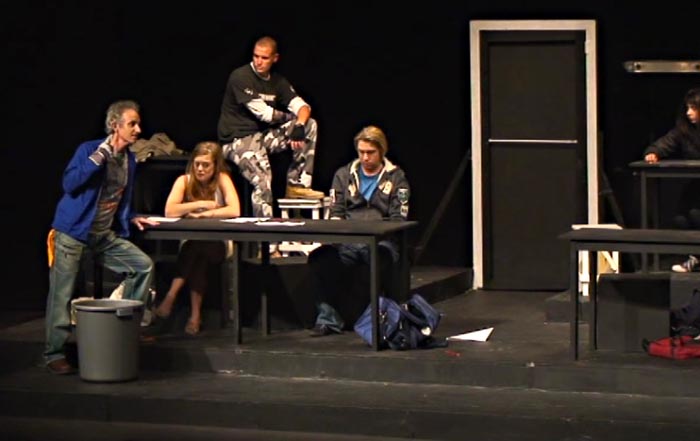
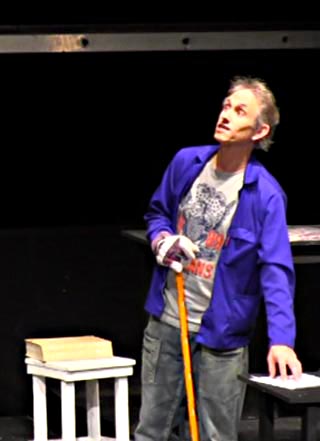
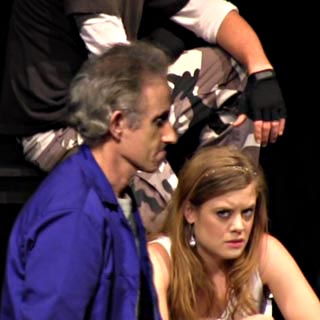
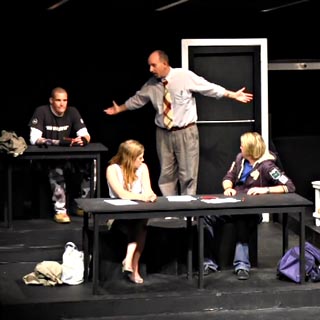
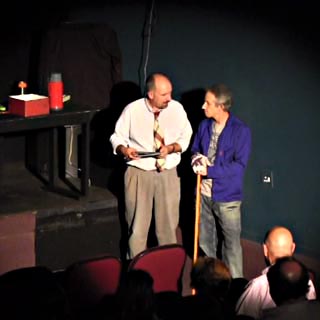
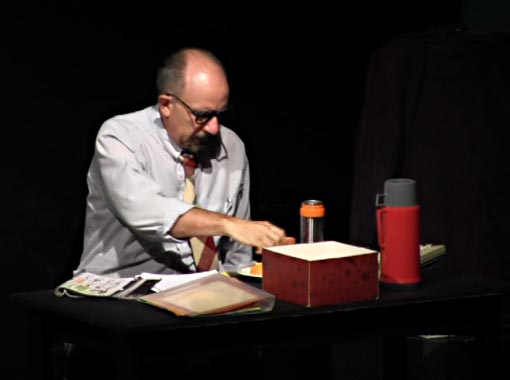
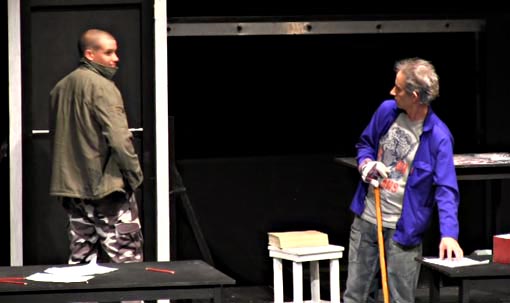
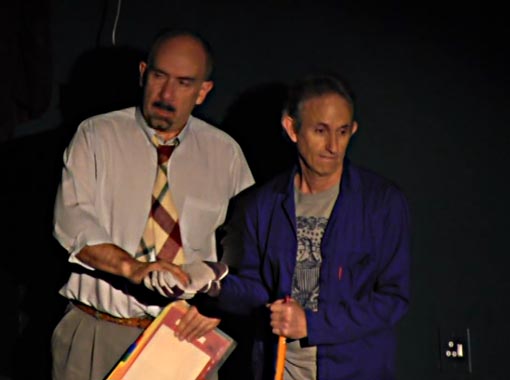
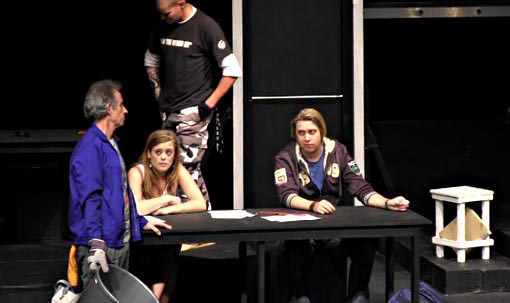
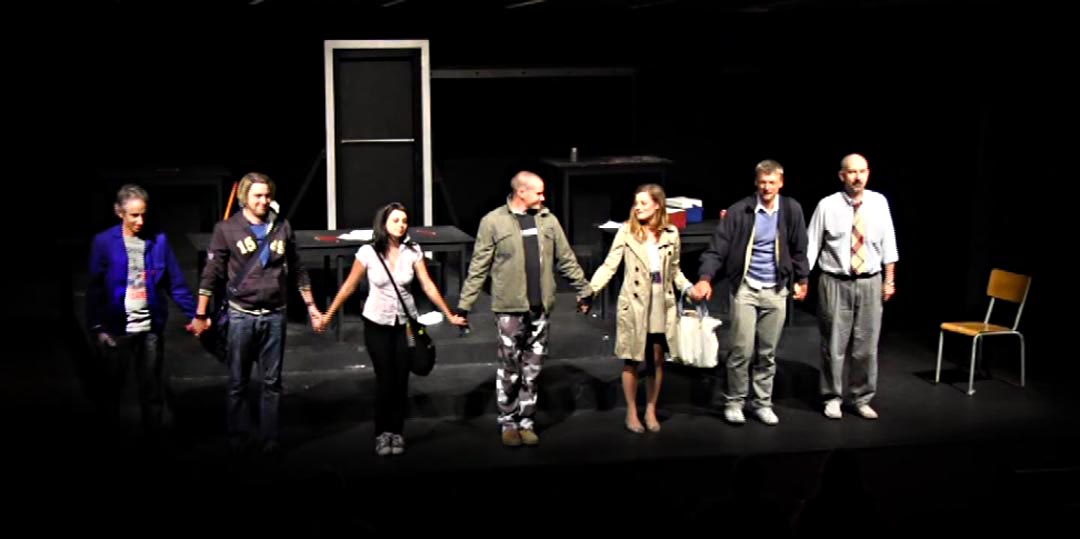
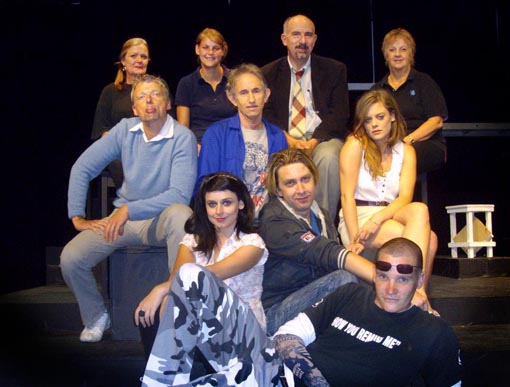
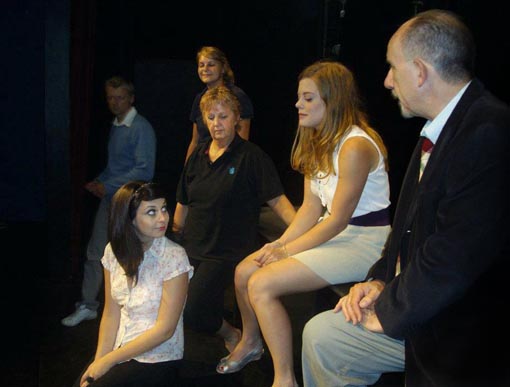
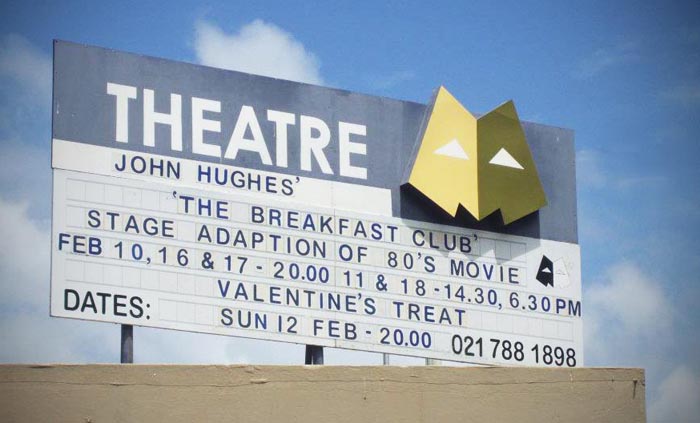
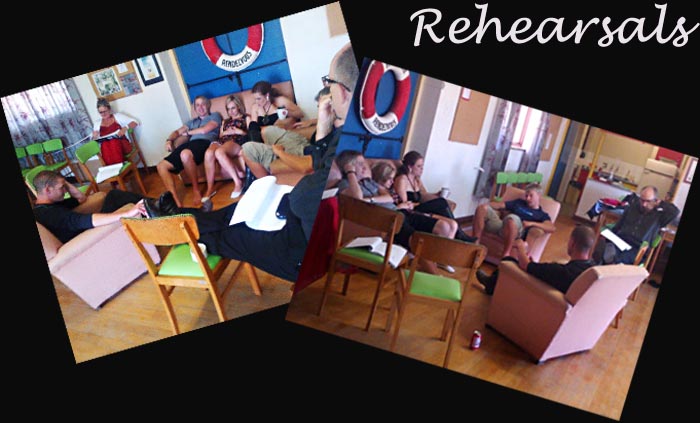
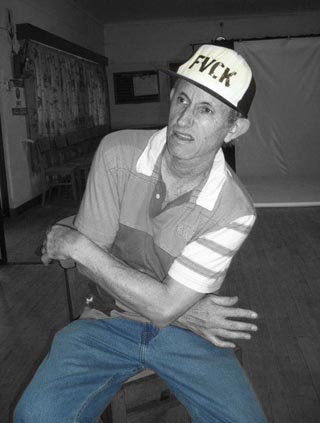
Reviews
